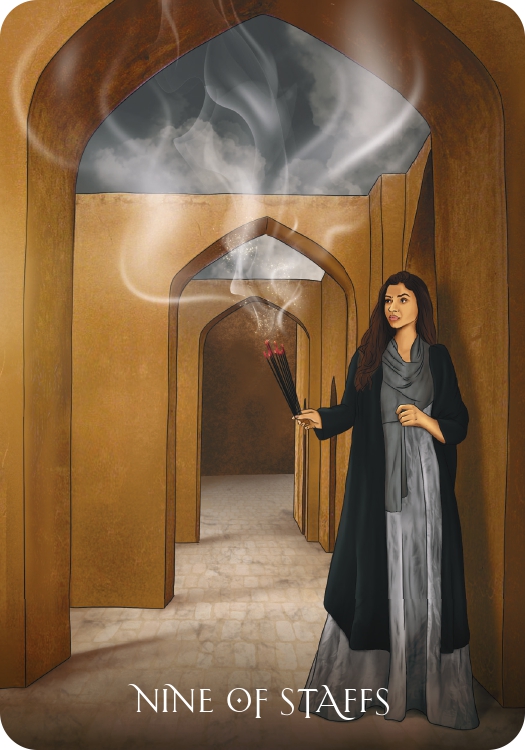It was at a Sufi retreat in the mountains this summer that I realized I had forgotten how to breathe. As we sat under the big white tent, cross-legged on the wooden floor, backs straight and shoulders pushed back, trying to connect with the source of all life and light, I realized I couldn’t.
Something about the experience of living through a pandemic had taken away my ability to breathe properly. It is through the breath that Sufis ground, balance and heal themselves. Ironically it was that very breath that Covid-19 had taken my capacity to connect with. After wearing a mask for so long, and a pattern of fearful, shallow breathing in public spaces, I had gotten trapped in the energy of constriction. The paranoia, the hostility I felt when someone coughed or sneezed, had transformed into a general, gnawing distrust.
Was this part of a collective PTSD my fellow retreatants and I were destined to share? In what other ways had feeling unsafe for so long affected us? That evening, inside my room in the little pinewood cabin, I pulled a card from my upcoming deck, The Sufi Tarot, the first deck to combine mystical Sufi wisdom with classic tarot archetypes. Uncannily, it was the Nine of Staffs. What a poignant way to connect with the realization of the day!
The Nine of Staffs is a card that speaks of fatigue, of what happens when the storm is over. Are we able to return to our breath or do we remain knotted? Are we able to move past the trauma, to rest in the moment, or do we stay trapped in the impressions from the past?
I looked at the artwork that had come to me in a meditation: a woman standing tensely on guard as she burns incense, haunted by that which is not there. What we see is not a gentle, spiritual ritual to purify a space but one being conducted out of fear, replete with tense body language, convinced the more incense sticks she burns, the safer she will be. It had been a year since the vision of that image had come to me and yet I found myself mirroring this woman more and more. Had I become her?
I had definitely started living in a state of constriction as opposed to expansion, a way of being that spills into all aspects of our lives. The Sufi path teaches us to overcome fear-driven impulses by being present to the Divine presence. One explanation of what a Sufi is, is “one who breathes well.” Another one is “ibn/bint waqt”, the son or daughter of the moment. What happens when we cease to do/be either?
Sufis also speak of “Hima”, the power or the force that moves us forward on our life’s path. Hima is the sheer concentration through which we focus on the One, the real, consciousness itself. It is a power that grows with every breath that we use well, propelling us further within and without – spiritually as well as physically toward our outward goals. It is what Henry Corbin referred to as the “creativity of the heart.”
How significant that the Nine of Staffs would point me toward cultivating my Hima at the very time I was examining my relationship with fear and its subsequent effect on my ability to be present.
I picked up the guidebook and read: When this card appears for you, know that the worst is over, and that it is time to move on. There is no need to dwell in the past or allow it to cast a heavy shadow over the present. However, if there are practical steps you need to take to ensure your safety, then do so.
Sufis speak of the importance of Tawakkul, full faith that that we are safe and protected. Of course, this faith is aided by the reassurance that we have taken the precautionary measures prescribed by common sense. Sometimes being defensive is necessary; it points us to physical measures that still need to be taken.
The Nine of Staffs however was a stark reminder that living in fear or anticipation was not only the antithesis of Tawakkul, it took away our power, the creativity of the heart that Corbin had spoken about.
And so I was directed back to the foundational Sufi breath practices, the secrets and remedies hidden in the slow and steady breath that not just bring about balance but are the basis for physical and mental health. It is through these breaths that we can clear impressions, achieve clarity, intuition and inner happiness. For it is through the breath well taken that we cease to be scattered in the past or the future, but rather grounded in the present. What better place can there be?
Ayeda Husain is the creator of The Sufi Tarot, being published by Hay House on September 20, 2022
 Share on bsky
Share on bsky


Read 2 comments and reply